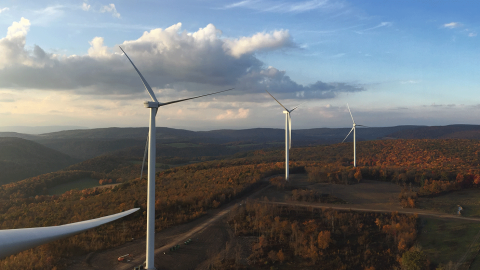A significant transformation has unfolded since the fintech surge of the 2010s, characterized by innovation, emerging business models, enhanced user experiences, and the establishment of new enterprises. Richard Peers, founder of Responsible Risk and contributing editor at Finextra Research, engages with Aaron McCreary, climate fintech lead at New Energy Nexus, to discuss the potential for a similar revolution within the sustainable finance sector in 2021.
With a rich history in crowdfunding and asset management, McCreary points out how the organization, previously known as the California Clean Energy Fund, has been instrumental in supporting entrepreneurs and guiding startups through thematic accelerator programs globally. Acknowledging the widespread challenges of 2020, New Energy Nexus is actively responding to trends in climate investment, decarbonization efforts, and policy evolution, while also continuing its support for the Hewlett Foundation’s five-year climate strategy, scheduled to run until 2023.
By examining the intersection of fintech and climate concerns—termed climate fintech—McCreary’s team has engaged in in-depth exploration of applied technologies and ecosystems poised for large-scale implementation in the years ahead. In their report, ‘Climate Fintech: Mapping an Emerging Ecosystem of Climate Capital Catalysts,’ McCreary articulates climate fintech as “digital financial technology that catalyzes decarbonization.”
He emphasizes, "Fintech has already demonstrated its capacity to disrupt the financial landscape. What if we harness this power specifically to reduce greenhouse gas emissions?" While prior research has investigated the relationship between fintech and the 17 UN Sustainable Development Goals, this report zooms in on SDG 7 and 13, focusing on how digital technologies can promote affordable, clean energy and actionable climate initiatives.
For McCreary, one crucial insight from the research is that the climate fintech ecosystem will impact both large financial institutions and individual consumers positively. He notes that various technologies are now intertwined with the daily financial habits of different stakeholders. For instance, consumers can access sustainable commerce tools that track credit card spending and recommend brands aligned with their desired carbon footprint.
Additionally, McCreary explains that neobanks are capitalizing on the shift caused by the COVID-19 pandemic, as a growing number of customers are banking digitally from home. This shift allows neobanks to disconnect from the fossil fuel sector more readily, enabling them to offer climate-conscious products and services. "These straightforward financial solutions can generate substantial impact at scale," he adds.
For a deeper dive, watch the full interview with Aaron McCreary, climate fintech lead at New Energy Nexus.
